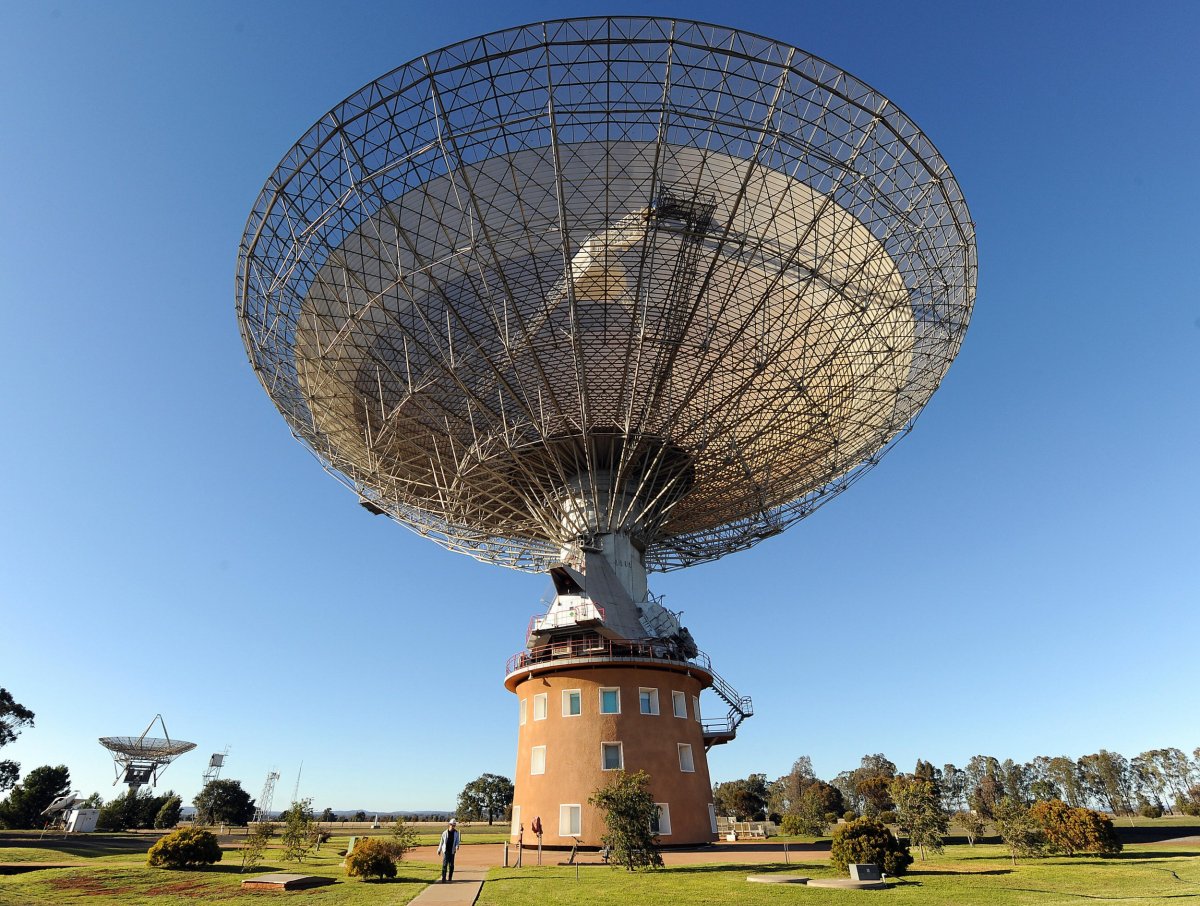The Breakthrough Listen project has started a new search for signs of intelligent alien life. Using cutting-edge equipment, astronomers are surveying millions of stars in the Milky Way for strange and mysterious signals that might be generated by extraterrestrials.
This new survey—which Listen states is by far the biggest search for alien life ever undertaken—will probe all of the galactic plane visible from the site of the CSIRO Parkes Radio Telescope in Australia, as well as a region around the center of the galaxy.

Listen is one of a number of Breakthrough Initiatives launched in 2015 by billionaires Yuri and Julia Milner aiming to find evidence of alien life. The Initiatives famously gained the support of leading physicists, including Martin Rees and the late Stephen Hawking.
Related: Stephen Hawking memorial service: Here's how you can apply for tickets
Listen has been scanning the skies with the Parkes telescope in New South Wales, Australia, since 2016. On the northern hemisphere, astronomers comb the cosmos with the Green Bank Telescope in West Virginia.
Upgrades to the Parkes telescope—including a new "multibeam" receiver and an improved back-end—have enabled the new expanded search. The telescope can now survey large areas of the skies much faster and process far more data than before, Listen states.
Related: Alien life: How would humans really react to E.T.? Study reveals surprising result
New improvements should also help astronomers separate mysterious space signals from the barrage of radio noise generated by humans.
"With these new capabilities, we are scanning our galaxy in unprecedented detail," Danny Price, Parkes project scientist with the Breakthrough Listen project at UC Berkeley, said in a statement.
The telescope will search for fast radio bursts alongside its hunt for mysterious intelligent signals. It's unclear what causes FRBs, but these short, bright flashes have baffled scientists for more than a decade.
Related: FRBs: Brightest-ever mystery radio burst signal spotted in space
This new survey—which will take place over 1,500 hours in 2018—should produce almost 100 petabytes of raw data. "By trawling through these huge datasets for signatures of technological civilizations," Price said, "We hope to uncover evidence that our planet, among the hundreds of billions in our galaxy, is not the only one where intelligent life has arisen."
So far, Listen's data hasn't found any signs of intelligent alien life. Only time will tell if this lastest endeavor is enough to track down any elusive E.T.'s.
Uncommon Knowledge
Newsweek is committed to challenging conventional wisdom and finding connections in the search for common ground.
Newsweek is committed to challenging conventional wisdom and finding connections in the search for common ground.
About the writer
Katherine Hignett is a reporter based in London. She currently covers current affairs, health and science. Prior to joining Newsweek ... Read more
To read how Newsweek uses AI as a newsroom tool, Click here.








